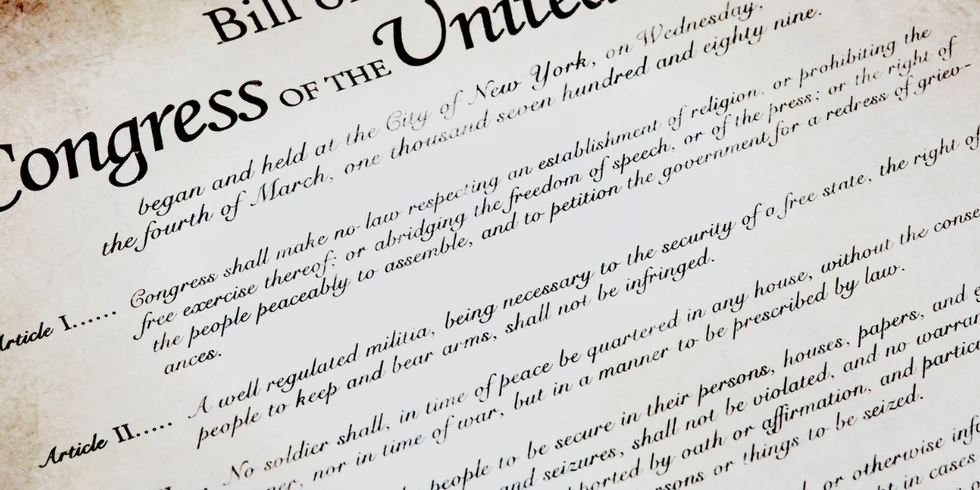BREAKING NEWS BRUTAL MURDER IN PHOENIX ARIZONA: Is Meta's Instagram a Digital Danger? The Alarming Use of Social Media in Orchestrating Violent Crimes
In a disturbing case in North Phoenix:
Three members of a self-described street gang have been arrested and charged in connection with the murder of Bernardo Pantaleon, a 30-year-old openly gay man. Pantaleon's body was found in Mountain View Park on November 26, having been shot multiple times and mutilated post-mortem with a knife.
Four days after the discovery of his body, photos of Pantaleon's mutilated remains were sent to his family members via Instagram, with the profile responsible linked to Jose Rodriguez, one of the accused. A group conversation uncovered on social media revealed plans by the North Side 15th Avenue street gang to rob and kill Pantaleon, with derogatory remarks made about his sexual orientation and comments about "homosexuals not being allowed" in Phoenix's north side.
All three suspects confessed to the murder. They have been charged and detained with bonds ranging from $500,000 to $2 million. The charges include first-degree murder for Leonardo Santiago and conspiracy to commit first-degree murder for the other two defendants. Additional charges include crimes against a dead person and assisting a street gang.
The case has raised concerns about hate crimes, as Pantaleon's family believes he was targeted for his sexuality. However, Arizona does not have a specific hate crime statute. Circumstances of the crime can influence sentencing, with hate crime being considered an aggravating factor that could lead to longer prison sentences.
This case raises serious questions about the use of social media platforms like Instagram in facilitating and perpetuating violence. The ease with which images of such a brutal crime were disseminated to the victim's family via Instagram is alarming, especially considering the advanced content monitoring and ad-targeting capabilities these platforms possess. It underscores the need for more stringent and proactive measures to detect and prevent the use of social media for malicious purposes.
The case involving the use of Instagram in the brutal murder in North Phoenix raises complex legal and ethical questions regarding the responsibility of social media platforms like Meta's Facebook and Instagram.
- Criminal Accomplice Liability: Generally, for a company to be considered an accomplice in criminal activities, it must be proven that the company had intent or knowledge about the crimes. Proving such intent or knowledge in Meta’s case would be challenging.
- Regulatory Actions: The idea of forcing Facebook and Instagram into a "Read Only" mode or taking them offline until they improve content monitoring is a significant regulatory measure. However, such actions would need to consider the balance between regulating harmful content and protecting free speech.
- Class Action Lawsuits: Families of victims could potentially file class action lawsuits against Meta, alleging negligence in monitoring and controlling harmful content. The success of such lawsuits would depend on establishing that Meta had a duty to prevent such misuse of its platforms and failed to do so.
- Corporate Responsibility and Human Trafficking, Drug Trafficking, and Other Crimes: Accusations of Meta being a criminal operation would require substantial evidence linking the company directly to such activities. Social media platforms often become tools for criminal activities, but direct corporate responsibility is a complex legal matter.
- Legal and Moral Responsibilities: Social media platforms like Meta are increasingly scrutinized for their role in spreading harmful content. Legally, they are often protected under laws like Section 230 of the Communications Decency Act in the United States, which shields online platforms from liability for user-posted content. Morally, there is growing pressure on these companies to better monitor and control the content on their platforms to prevent misuse.
- Arresting Corporate Executives: Arresting executives for crimes committed via their platforms is a drastic step and would require clear evidence of direct involvement or willful negligence in criminal activities.
While Meta faces significant legal and ethical challenges in moderating content on its platforms, the extent of its legal liability and the appropriate regulatory or legal actions are complex and would require careful legal consideration. To hold social media platforms like Meta more accountable, the U.S. Congress would need to amend Section 230 of the Communications Decency Act. Potential changes could include:
Narrowing the Immunity:
This amendment would involve redefining the scope of immunity provided to platforms. Currently, Section 230 offers broad protections to platforms from being held liable for user-generated content. The proposed change would carve out exceptions for clearly illegal activities or content that poses a significant risk of harm, such as incitement of violence, hate speech, or coordinated criminal activities. This would make platforms more accountable for preventing and swiftly responding to such content.
- Legislators and citizens of the USA can take several steps to push for the amendment of Section 230 to narrow the scope of immunity for social media platforms:
- Advocacy and Public Awareness: Raise awareness about the negative impacts of unmoderated content on social media platforms and mobilize public opinion to support changes in the law.
- Contacting Representatives: Citizens can contact their local representatives to express support for amending Section 230, while legislators can draft or support bills proposing such amendments.
- Supporting Research and Reports: Encourage and support research that highlights the consequences of harmful online content, providing data to inform policy decisions.
- Participating in Public Consultations: Engage in public consultations and legislative hearings to voice concerns and suggestions regarding the regulation of social media platforms.
- Collaboration with Experts and Stakeholders: Work with legal, technological, and social experts to craft effective and balanced amendments to Section 230 that hold platforms accountable without stifling free speech and innovation.
Due Diligence Requirements:
This proposal would mandate that platforms engage in proactive monitoring and management of content. Platforms would be required to establish and implement effective content moderation policies and systems. Failure to demonstrate reasonable efforts in identifying and addressing harmful content could lead to liability. This could include regular audits, transparent reporting of their moderation practices, and prompt response to law enforcement requests. The key aspect of this amendment would be defining what constitutes "reasonable efforts" and "due diligence" in content moderation to ensure that platforms are held to a consistent and enforceable standard.
- Transparency and Reporting Obligations: Mandate regular reporting on content moderation practices and transparency in algorithms used to promote content.
- Clear Definitions of Illegal Content: Define specific categories of content that platforms must proactively monitor and remove.
- Penalties for Non-compliance: Establish penalties for platforms that fail to adhere to these new standards.
- User Redress Mechanisms: Create mechanisms for users to challenge content moderation decisions and hold platforms accountable for wrongful content removal or failure to remove harmful content.
Any changes would need to balance the need for accountability with the principles of free speech and innovation. These amendments would likely require extensive debate and consideration of the potential impacts on both users and the platforms themselves.

To enhance accountability and oversight of social media platforms, two key areas can be addressed:
Transparency and Reporting Obligations:
This involves mandating social media platforms to regularly publish detailed reports on their content moderation practices. These reports should include statistics on the types of content removed, the reasons for removal, and the geographic distribution of such actions. Additionally, platforms should be required to disclose the algorithms they use to promote or demote content, providing insight into how certain types of content gain prominence. This transparency would allow for better public understanding and scrutiny of platform practices.
- To push for transparency and reporting obligations on social media platforms, both legislators and citizens can:
- Drafting Legislation: Legislators can draft bills that mandate these transparency requirements, ensuring legal backing for such obligations.
- Public Campaigns: Citizens and advocacy groups can initiate public campaigns highlighting the need for transparency in social media operations, garnering public support.
- Engaging with Regulatory Bodies: Engage with bodies like the Federal Communications Commission (FCC) or the Federal Trade Commission (FTC) to advocate for these changes.
- Holding Hearings and Forums: Organize legislative hearings or public forums to discuss the impact of social media content algorithms and moderation practices, inviting experts and public opinion.
- Educational Initiatives: Support educational initiatives that inform the public and policymakers about the importance of transparency in content moderation and algorithmic processes in social media.
Clear Definitions of Illegal Content:
Legislators could work towards clearly defining specific categories of content that platforms are legally obligated to monitor and remove. This could include categories like hate speech, incitement to violence, explicit material, and misinformation that poses a public health or safety risk. By providing clear legal definitions, platforms would have a concrete basis for content moderation and would be less able to claim ambiguity in their moderation responsibilities. This clarity would also help platforms develop more targeted and effective content moderation policies.
To promote the establishment of clear definitions of illegal content, legislators and the public can:
- Legislative Proposals: Legislators can propose bills that define specific illegal content categories, providing clear guidelines for social media platforms.
- Public Petitions and Campaigns: Citizens can organize petitions and campaigns to advocate for these legislative changes, raising awareness and support.
- Expert Consultations: Engage with legal, technological, and social experts to create comprehensive and practical definitions of illegal content.
- Community Outreach and Education: Educate the community on the importance of defining illegal content and how it impacts social media use and safety.
- Testimonies and Hearings: Participate in legislative hearings, providing testimonies and insights on the impact of undefined illegal content and the need for clarity.
To enhance accountability in social media content moderation, two critical measures can be implemented:
Penalties for Non-compliance:
- Legislation: Legislators can draft laws imposing financial penalties, such as fines, for platforms that fail to meet content moderation standards.
- Licensing and Operational Restrictions: Consider imposing licensing restrictions or operational limitations on platforms that consistently fail to comply.
- Public Reporting: Mandate public disclosure of non-compliance incidents, potentially impacting the platform's public image and stock value.
- Legal Liability: Introduce legal liability for company executives for repeated failures in content moderation.
To advocate for penalties for non-compliance in content moderation, both legislators and the public can take these steps:
- Drafting and Supporting Legislation: Legislators can draft and support bills that impose financial penalties and legal liabilities, while citizens can rally support for such legislation through petitions and public advocacy.
- Lobbying for Licensing Restrictions: Both groups can lobby for stricter licensing and operational restrictions for non-compliant platforms.
- Promoting Public Reporting: Advocating for mandatory public disclosure of non-compliance incidents to create pressure on platforms to adhere to standards.
- Public Hearings and Testimonies: Organize and participate in public hearings to discuss the impact of non-compliance and gather testimonies supporting stricter penalties.
- Educational Campaigns: Conduct campaigns to educate the public about the importance of content moderation and the need for penalties for non-compliance, thus building a well-informed base of support.
User Redress Mechanisms:
- Independent Review Boards: Establish independent boards to review user appeals against content moderation decisions.
- Transparent Appeal Processes: Require platforms to provide a clear, accessible appeal process for content moderation decisions.
- User Advocacy Groups: Support the formation of user advocacy groups to represent the interests of users in content moderation matters.
- Regular Audits: Implement regular audits of content moderation practices, ensuring adherence to declared standards and processes.
- Legal Recourse: Provide legal avenues for users to seek redress for damages caused by wrongful content removal or failure to remove harmful content.


